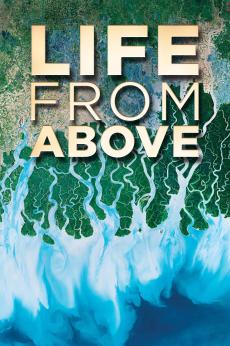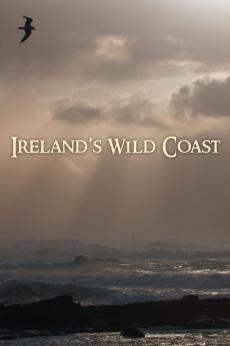Frontiers in Zoology
In this final episode of Crash Course Zoology, we review everything we've learned and even look at advances in the field that took place just in the 14 weeks of this course! Rae also shares various ways YOU can get involved in the zoology field!
Episodes
-

Frontiers in Zoology
S1 E14 - 12m 35s
In this final episode of Crash Course Zoology, we review everything we've learned and even look at advances in the field that took place just in the 14 weeks of this course! Rae also shares various ways YOU can get involved in the zoology field!
-

What is a Species?
S1 E13 - 12m 35s
In the penultimate episode of Crash Course Zoology, we use everything we've learned so far to try and figure out what a "species" even is anyway! As you'll see, the incredible diversity of animals makes it really difficult to fit animals into neat categories so scientists have employed a variety of approaches to categorizing animals.
-

Phylogenetic Mysteries
S1 E12 - 12m 32s
There are so many more questions we have yet to answer in Zoology so grab some fossils, fire up the DNA sequences, and bring your best hypothesis as we try to figure out where all the baby eels are, explain why spiders seem so lonely, and decide once and for all if horseshoe crabs are arachnids!
-

Parasites
S1 E11 - 13m 4s
Nearly every environment on Earth — and that includes animals — is home to some kind of parasite. We explore parasites not just because they’re an essential part of their ecosystems, but also because by studying them we can learn more about their hosts and even their shared evolution and ecology.
-

Animals Working Together
S1 E10 - 13m 21s
Social behavior like caring for our young, fighting off rivals, or joining a pack adds a whole other layer of complexity to the lives of animals out there. We dive into the amazing ways animals interact with other animals, live a day in the life of the Portuguese Man O'War, and learn how these complex social interactions go way beyond anything humans are capable of!
-

Reproduction
S1 E9 - 13m
Sexual reproduction is part of the very definition of what it means to be an animal and as you'll see life has found a variety of methods to pass down genetic information. We explore the differences between sex and gender, and look at sex determination systems, examine how same-sex behavior happens all across the animal kingdom, and live a day-in-the-life of a hermaphroditic clownfish.
-

Ancestral & Weird Senses
S1 E8 - 12m 42s
We talk about one of the earliest animal senses, - chemosensation -- or our sense of taste and smell. We discuss how animals use these senses to explore their environment and communicate, and how that pair of nostrils of yours is an example of convergent evolution. And, witness how some animals have the ability to sense electric and magnetic fields.
-

How Animals Hear
S1 E7 - 11m 56s
We talk about what an ear even is, how ears have evolved, how they work, and some of the cool ways animals have tweaked their ears to work for their lifestyle.
-

How Animals See
S1 E6 - 12m 39s
One of the most common adaptations seen in the animal kingdom is vision. Nearly 96% of all animals have some kind of eyes and they've proven so evolutionary advantageous that they've evolved multiple times in multiple ways and in a surprisingly short amount of time! We walk through the different types of eyes, show you how they work, and even take you on the day in the life of one
-

Brainy & Brainless Animals
S1 E5 - 12m 45s
We're going to take a closer look at brains, how animals use them, and how some animals have even evolved to lose them! It turns out a brain (and intelligence more broadly) isn't easy to define, but what we do know for sure is that brains have evolved over time in response to the challenges in an animals' environment.
-

How & What Animals Eat
S1 E4 - 13m 35s
Animals have evolved to eat a lot of different things, even stuff that barely passes for food, and it shapes our entire lives from what we look like to where we live. Today, we’ll talk about why being a carnivore is just easier than being a herbivore, why there are so few omnivores out there, and dedicate a little time to the remaining 2% of animals that really push the definition of food.
-

Diversity of Bodies & Sizes (but mostly crabs)
S1 E3 - 13m 16s
Even though animals can look very different on their surface, there are surprising similarities in how they’ve evolved to solve major problems - like how to support and move their bodies. Today, we’ll take a look at the various ways animals can grow, learn how and why some animals evolved to have a head and others evolved to not have a head, and examine the different types of skeletons.
Extras + Features
-

Crash Course Zoology Preview
3m 36s
In this fourteen-episode series made in partnership with PBS and Nature, Crash Course Zoology will take a rapid deep dive into the weird and wonderful biology of animals. Host, wildlife ecologist, and conservation scientist, Dr. Rae Wynn-Grant will guide us across the tree of life as we endeavor to answer what makes an animal an animal anyway?
WETA Passport
Stream tens of thousands of hours of your PBS and local favorites with WETA Passport whenever and wherever you want. Catch up on a single episode or binge-watch full seasons before they air on TV.
Similar Shows

SciGirls Stories: Black Women in STEM
Science and Nature

Life from Above
Science and Nature

PBS Space Time
Science and Nature

Paleo Sleuths
Science and Nature

Ireland's Wild Coast
Science and Nature

The Green Planet
Science and Nature

Beauty on the Wing: Life Story of the Monarch Butterfly
Science and Nature

Return to the Wild
Science and Nature

Before Stage Four: Confronting Early Psychosis
Science and Nature

Turning the Tide
Science and Nature